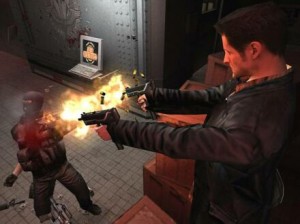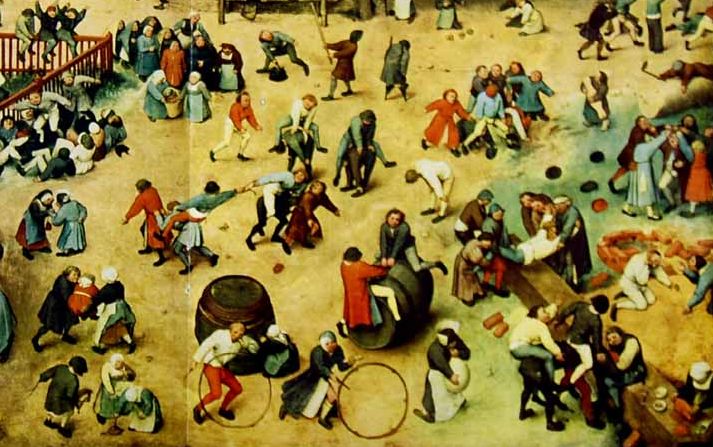Children’s games played at streets were one of the most important medium for child culture. Themes, rules and roles followed what children wanted to play. Players could change rules by agreement with other players. Names, symbols and plot were all defined by local culture. Children could play with social taboos and authorities. Immigrants brought opportunities for mixing and comparing elements from different local games. Games evolved or got abandoned by an organic cultural selection, making them a rich cultural heritage for new generations.
 Sadly, this cultural heritage is getting lost in urban spaces. Children are not allowed to play in the streets, where unexpected violence is a constant trait. They have only controlled spaces like schools and playgrounds to play, but if games are not directly manipulated by adults, they are being played under surveillance. If any violent expression occurs, adults intervene. Adults protect children from playing with violence, but children know they have to understand it, or else how could they survive in such a violent space? That’s one of the causes of the widespread use of violence in electronic games. Electronic games make it safe to act violently, but, if children wants to behave differently, they can’t. If they do it, they lose the game. They have to buy another game if they want something different. They can’t change game’s rules.
Sadly, this cultural heritage is getting lost in urban spaces. Children are not allowed to play in the streets, where unexpected violence is a constant trait. They have only controlled spaces like schools and playgrounds to play, but if games are not directly manipulated by adults, they are being played under surveillance. If any violent expression occurs, adults intervene. Adults protect children from playing with violence, but children know they have to understand it, or else how could they survive in such a violent space? That’s one of the causes of the widespread use of violence in electronic games. Electronic games make it safe to act violently, but, if children wants to behave differently, they can’t. If they do it, they lose the game. They have to buy another game if they want something different. They can’t change game’s rules.
There are some games that offers customization and some that enables sharing gamer’s creations, but many limitations are imposed by the commercial interests of game companies. There are some commercial platforms for building an entire game (The Games Factory, Game Maker), but they are too complicated for children to use. There are educational tools easier to use (Scratch, Alice), but they try to teach programming language in order to build something.
The goal for this research is to find simple means for negotiating rules in electronic games. Differently from many projects derived from Papert constructionism, the objective is not to design a pedagogical tool, but to engage children in cultural actions, as described by the critical pedagogy of Paulo Freire. The focus won’t be on the programming language, but instead on the artistic expression and social collaboration with other children.
This project run from 2008 to 2011.
